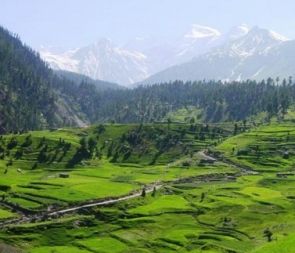 In a move that is bound to raise hackles in India, Pakistan is working on raising the constitutional status of its occupied Gilgit-Baltistan to address China's concerns over the $46-billion economic corridor through the strategic region.
In a move that is bound to raise hackles in India, Pakistan is working on raising the constitutional status of its occupied Gilgit-Baltistan to address China's concerns over the $46-billion economic corridor through the strategic region.
The strategic region in the north provides the only vital link with China. It is also on the key route of the ambitious China-Pakistan Economic Corridor, linking western China to southern Pakistan's GwadarPort with a network of roads, highways, railways and investment parks.
An official said that a committee was working on a plan to address Chinese concerns over its investment after India objected to its building of the CPEC through Pakistan- occupied Kashmir.
"One of the proposals is to raise the status of the region but it will be still short of regular province. The region would be mentioned in the Constitution and will be represented in Parliament," he said.
If implemented, the mountainous region would find a mention in Pakistan's Constitution for the first time. According to analysts, its new status could have far-reaching ramifications -- change of Pakistan's traditional stance on Kashmir and also possible increase of friction with India.
The PoK is divided into what is called as 'Azad Kashmir' and Gilgit-Baltistan. Both these regions have their own legislative assemblies and, technically, are not part of Pakistan federation.
Pakistan administers them through a special minister for Kashmir and joint councils.
Internally, both regions are largely independent but external affairs and defence are strictly controlled by Pakistan.
Traditionally, Pakistan maintains that Kashmir is a disputed region and its status should be decided through plebiscite under the UN resolution of 1948-49.








